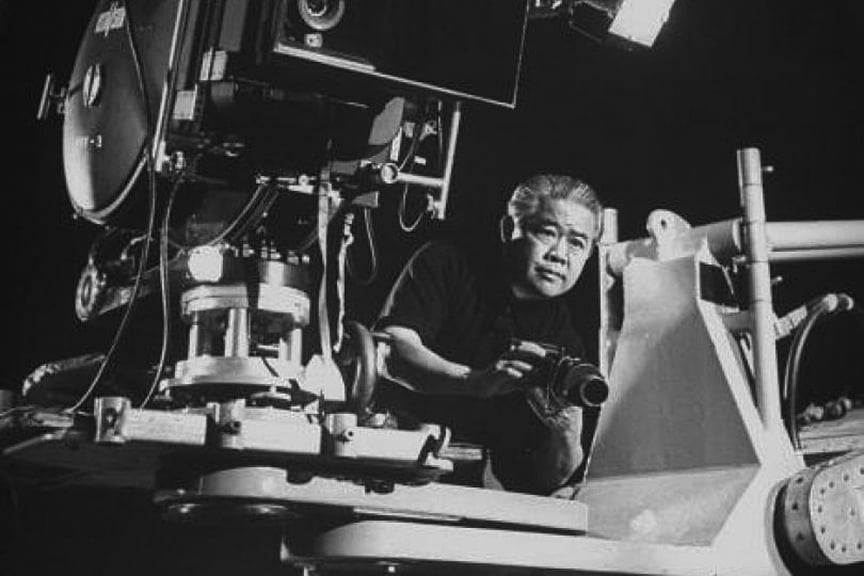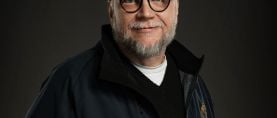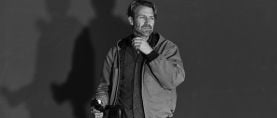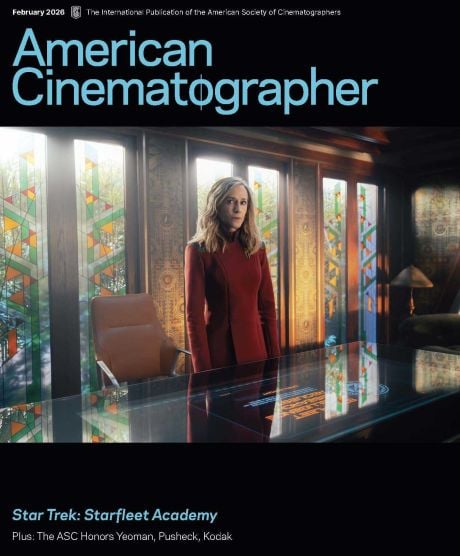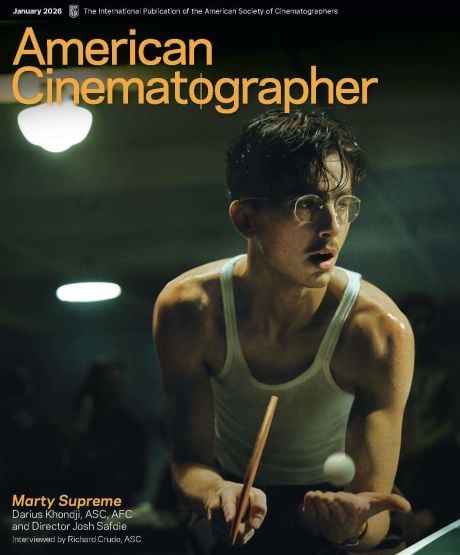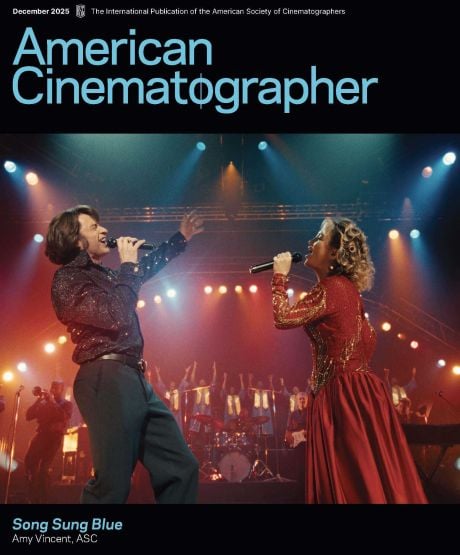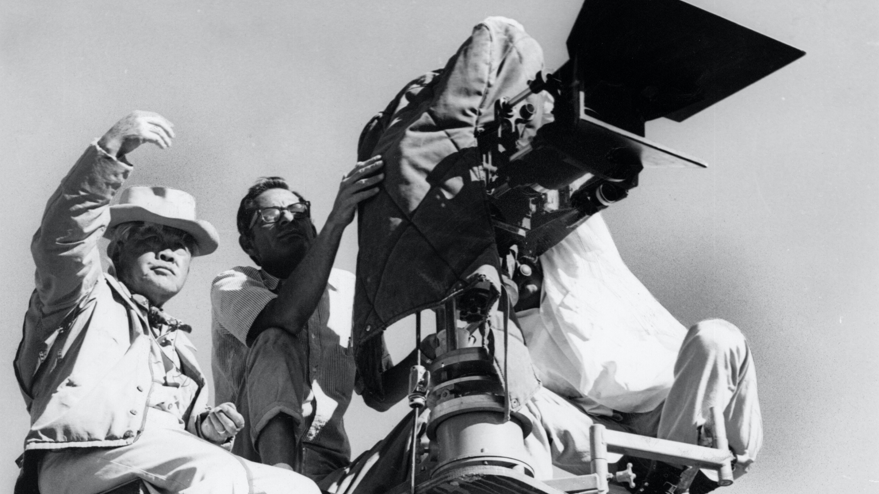
Museum of the Moving Image Honors James Wong Howe, ASC With Sweeping Retrospective
A 19-film series devoted to the cinematographer who helped shape the look of classic Hollywood.

The Astoria, NY-based Museum of the Moving Image is presenting the screening series How It’s Done: The Cinema of James Wong Howe, opening May 13 with one of the two films for which Howe won an Academy Award: Hud (1963) (read AC's coverage), directed by Martin Ritt and starring Paul Newman. The series continues through June 26 with films from each of the decades in which he worked, ranging from the silent era — Peter Pan (1924) and Mantrap (1926) — through his years at Warner Bros., his work as an independent to his final film, Funny Lady (1975), starring Barbra Streisand. The series also includes a rare screening of the independent film he directed, Go Man Go (1954), a New York–shot origin story about the Harlem Globetrotters, which featured Sidney Poitier, Ruby Dee, and real-life members of the famed basketball squad.
When possible, selections will be presented on 35mm film, including archival prints.
“Movies are an amalgam of choices, and Howe always, despite a changing industry and society and a rotating group of collaborators, made the right ones.”
— MoMI Curator of Film Eric Hynes
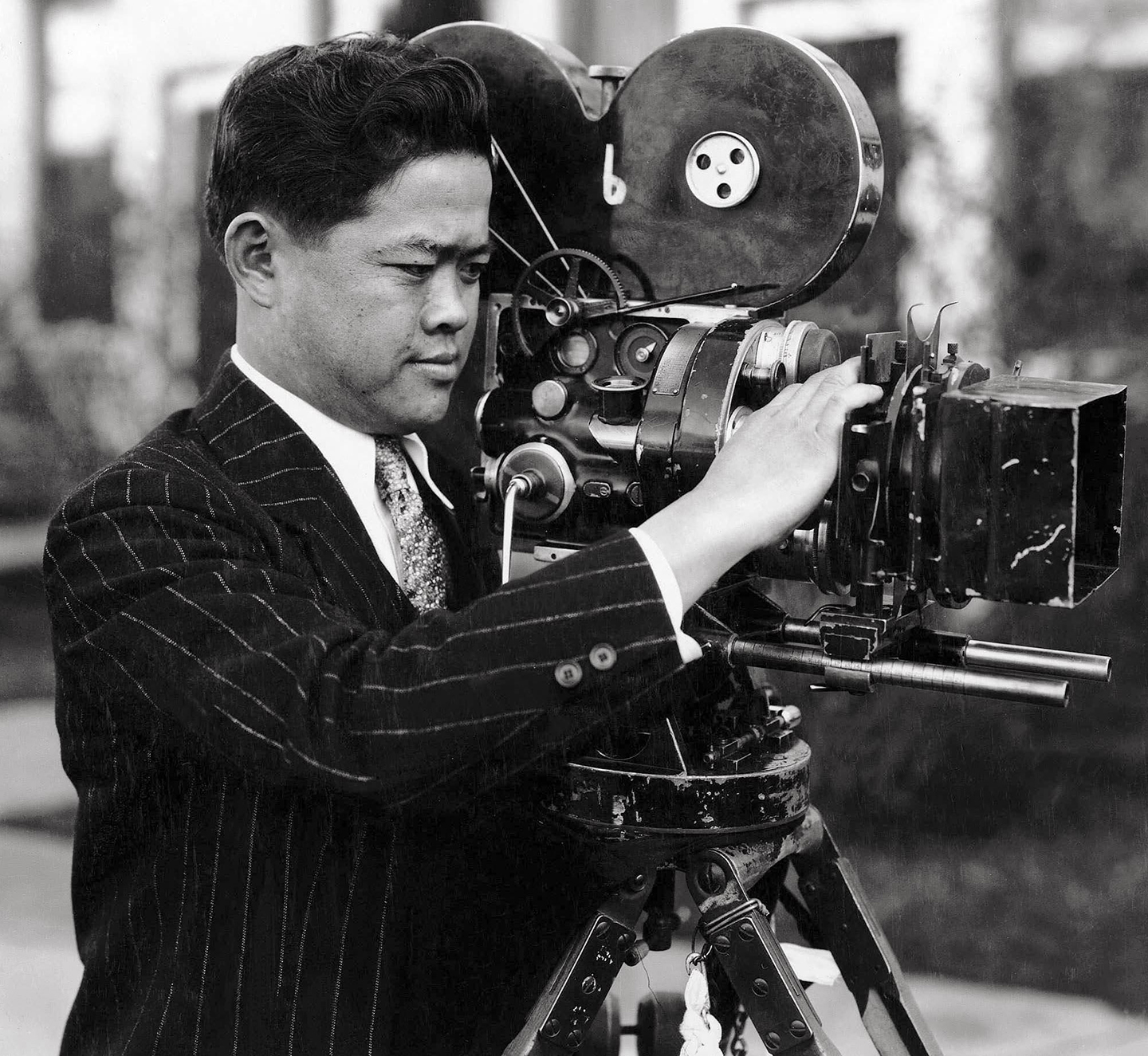
Born in China at the dawn of the 20th century and arriving in the United States as a young child, Howe would come of age alongside Hollywood, apprenticing his way to studio contract cameraman and cinematographer in the early part of his career, taking on assignments for luminaries such as Allan Dwan, Victor Fleming, and Howard Hawks, and developing particular affinities with William K. Howard and John Cromwell. Howe later became a highly sought-after independent cinematographer, filming a string of late-career
hits including Picnic (1955), Sweet Smell of Success (1957) (AC's Blu-ray review), The Rose Tattoo (1955), and Hud (taking home Oscars for the latter two). Though films such as Seconds (1966) (AC's coverage) and Bell, Book and Candle (1958) (AC's Blu-ray review) afforded him more stylistic opportunities, Howe’s approach was always one of practical, story-driven solutions to dramatic problems.
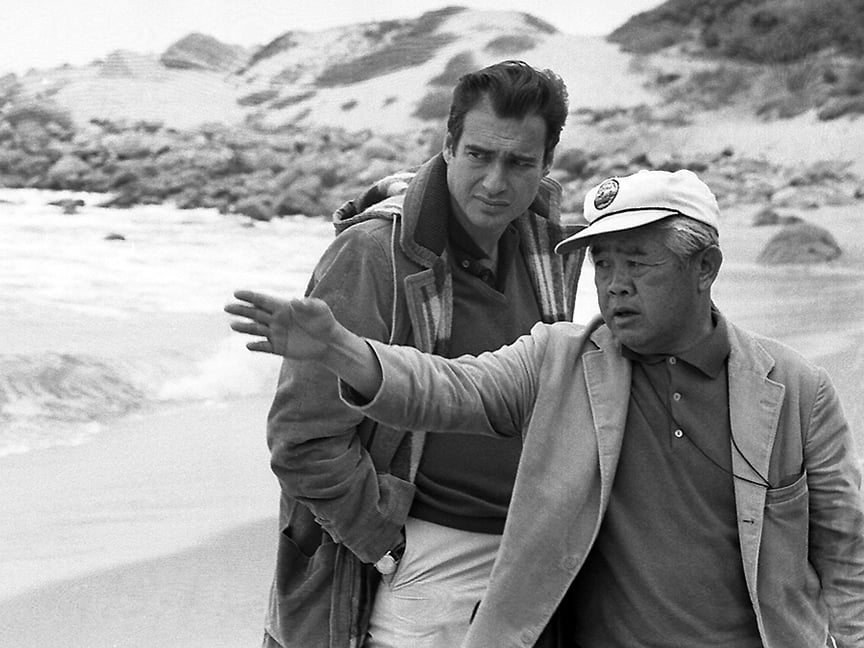
“Discovering or revisiting the work of James Wong Howe is to encounter one exquisite choice after another — he always seemed to know just how to light a set, where to place the camera, and when to move it,” said MoMI Curator of Film Eric Hynes. “Movies are an amalgam of choices, and Howe always, despite a changing industry and society and a rotating group of collaborators, made the right
ones.”
Howe was the first person of color invited to join the ASC (in 1933). He was the first Asian cinematographer to be nominated for the Academy Award for Best Cinematography (for 1938’s Algiers) and the first Asian cinematographer to win the award (The Rose Tattoo). Throughout his career, he was nominated for 10 Oscars and won two, making him the most nominated Asian cinematographer.
All screenings will take place in the Sumner M. Redstone Theater or the Bartos Screening Room at Museum of the Moving Image in Astoria, NY. Advance tickets are available online. Here are the MoMI notes on the films being presented:
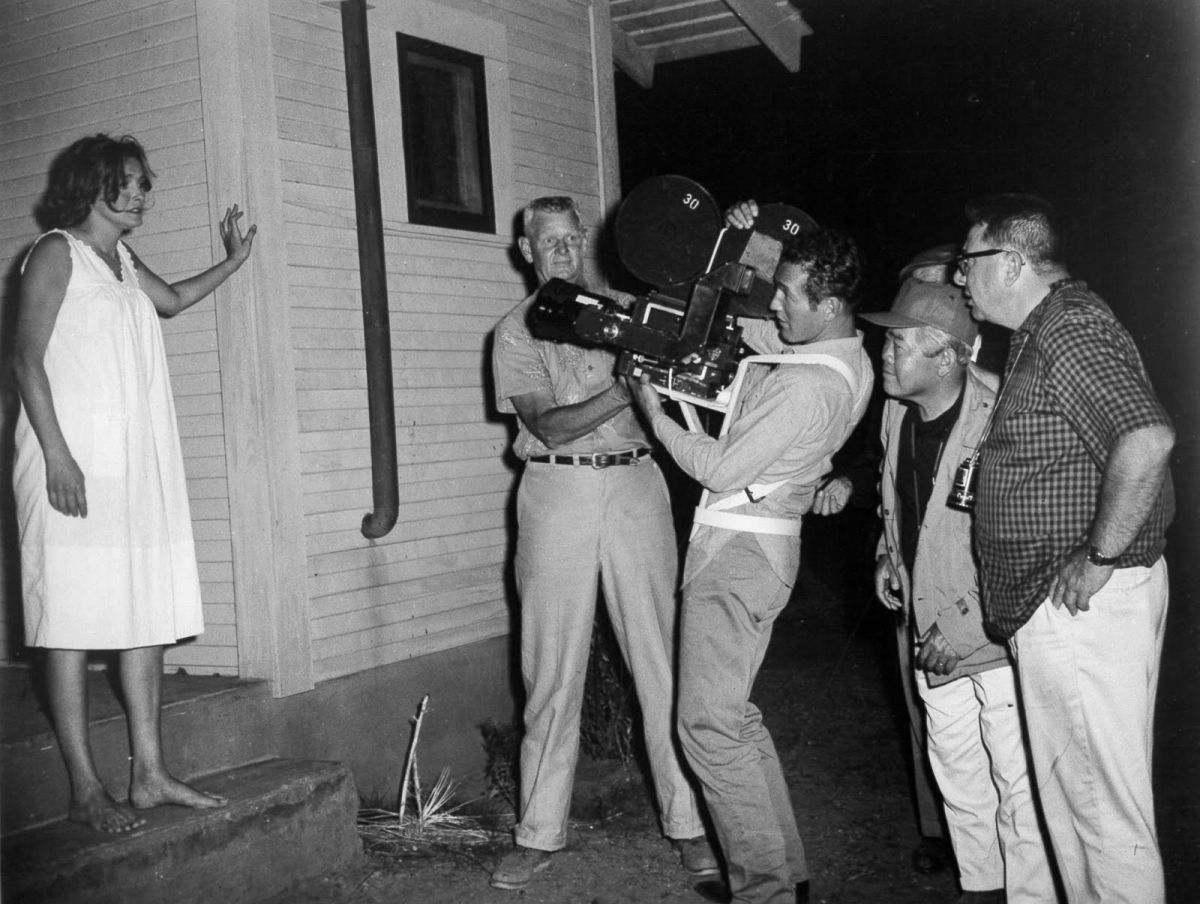
Hud - Friday, May 13, 7:00 p.m.
Sunday, May 15, 6:00 p.m.
Dir. Martin Ritt. 1963, 112 mins. 35mm. With Paul Newman, Patricia Neal, Melvyn Douglas. Newman plays a hell-raising cowboy who doesn’t get along with his moralistic rancher father (Douglas). Patricia Neal, as the housekeeper who tempts Hud while refusing his advances, Douglas and Howe all won Oscars for their work on the film.
Mantrap - Saturday, May 14, 1:00 p.m.
Friday, May 27, 2:30 p.m.
With live accompaniment by Makia Matsumura on Saturday, May 14, 1:00 p.m.
Dir. Victor Fleming. 1926, 86 mins. Archival 35mm print courtesy of the Library of Congress. With Clara Bow, Percy Marmont, Ernest Torrence, Ford Sterling, Eugene Pallette. Fleming’s western parody follows a Minneapolis manicurist (21-year-old Bow in her breakout performance) as she negotiates the competing affections of her trader husband (Torrence) and an effete New York divorce lawyer (Marmont) amid the picturesque wilderness of central Canada. Shot on location by Howe with a double eye for large-scale scenic beauty and discreet comic detail.
The Thin Man - Saturday, May 14, 3:00 p.m
Sunday, May 15, 4:00 p.m.
Dir. W.S. Van Dyke. 1934, 91 mins. 35mm. With William Powell, Myrna Loy, Maureen O'Sullivan, Nat Pendleton, Minna Gombell. Dashiell Hammett’s hit novel — about reluctant private detective Nick and his perceptive wife, Nora — is wittily adapted to the screen by Frances Goodrich and Albert Hackett. This 1934 Best Picture Oscar nominee introduced the world to the martini-dry chemistry of Powell and Loy. In one of his biggest early sound films, Howe layers the image with sophistication and sparkle.
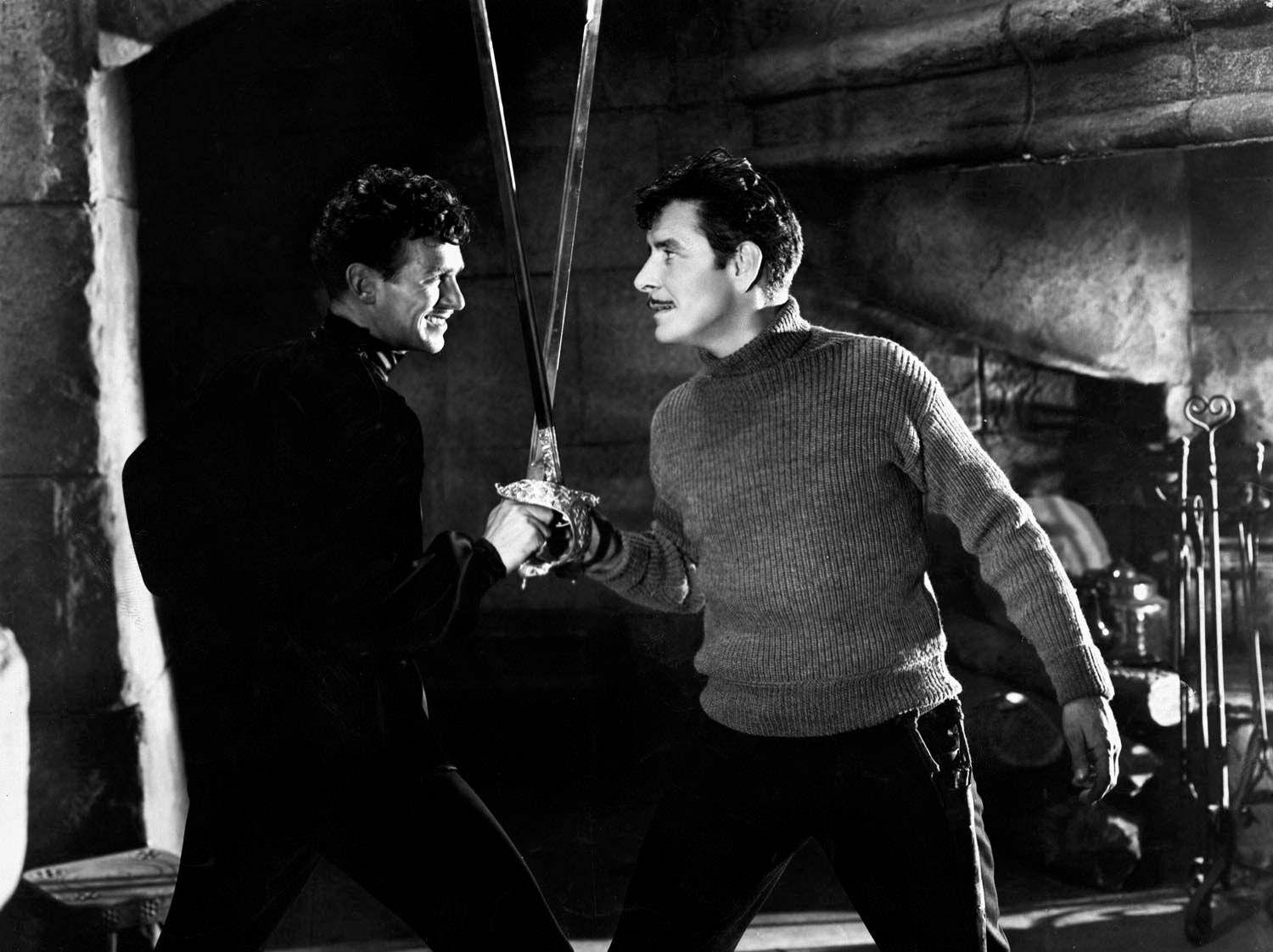
The Prisoner of Zenda - Friday, May 20, 7:00 p.m.
Saturday, May 21, 3:00 p.m.
Dir. John Cromwell. 1937, 101 mins. 35mm. With Ronald Colman, Madeleine Carroll, Douglas
Fairbanks Jr. In this David O. Selznick production of a popular 19th-century novel, Colman plays an English gentleman who takes a fishing trip to an unnamed central European country where he encounters a soon-to-be king with whom he bears a striking resemblance (also Colman). Working alongside legendary art director William Cameron Menzies, Howe devised ambitious tracking shots, ceiling-suspended shots, fluid transitions from interior to exterior and in-camera split-screen effects to allow Colman to interact with himself.
After Tomorrow - Saturday, May 21, 1:00 p.m.
Sunday, May 22, 1:00 p.m.
Dir. Frank Borzage. 1932, 79 mins. 35mm print courtesy of the UCLA Film & TV Archive. With Charles Farrell, Marian Nixon, Mina Gombell, Josephine Hull, William Collier, Sr. Howe’s photography brings a sense of moody, stylized drama to this pre-Code, depression-era love story. Farrell and Nixon play engaged lovebirds grounded by money woes and meddlesome mothers. Every frame of Howe’s work here is imbued with subtle innovation — where to place the camera, when to move it, how to evoke big city life and psychological interiority.
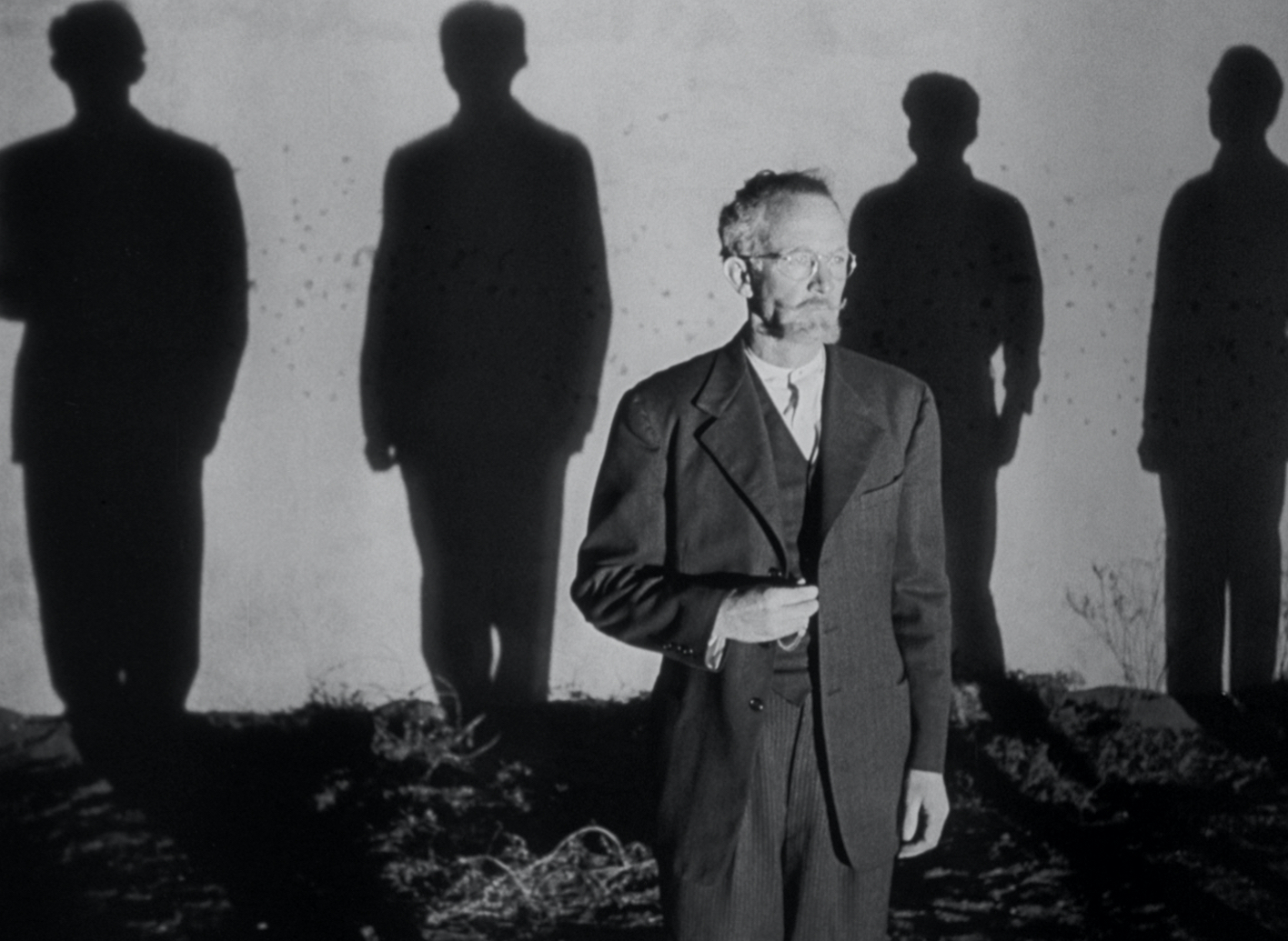
Hangmen Also Die! - Saturday, May 28, 3:30 p.m.
Sunday, May 29, 4:00 p.m.
Dir. Fritz Lang. 1943, 134 mins. Restored DCP. With Hans Heinrich von Twardowski, Brian Donlevy, Walter Brennan, Alexander Granach, Anna Lee, Gene Lockhart, Dennis O'Keefe. Set in Nazi-occupied Czechoslovakia, Lang’s Hangmen Also Die! is loosely based on the real-life assassination of Reinhard Heydrich — “The Hangman of Prague” — and adapted from a story by Bertolt Brecht. Through expressive use of shadows, Howe’s cinematography captures the city’s claustrophobia, with some astonishingly suggestive references to off-screen torture.
The Hard Way - Friday, May 27, 7:00 p.m.
Sunday, May 29, 1:00 p.m.
Dir. Vincent Sherman. 1943, 109 mins. Archival 35mm courtesy of the UCLA Film & TV Archive. With Ida Lupino, Dennis Morgan, Joan Leslie. Sherman’s gritty musical melodrama stars Ida Lupino as Helen, a woman hell-bent on escaping poverty by pushing her sister (Leslie) into marriage with a showman (Morgan) and stage stardom. Lupino was awarded Best Actress by the New York Film Critics Circle for her hardboiled performance, which Howe supports with moodier images than are normally found in backstage dramas.
Go Man Go - Saturday, May 28, 1:00 p.m.
Sunday, June 5, 12:30 p.m.
Dir. James Wong Howe. 1954, 82 mins. Archival 16mm print courtesy of the Academy of Motion
Picture Arts and Sciences. With Dane Clark, Sidney Poitier, Ruby Dee, Patricia Breslin, and the
Harlem Globetrotters. Howe’s sole directorial feature is a rousing, scrappy production that dramatizes the formation of the beloved basketball entertainment troupe. Shot in New York, with actual Globetrotters game-play captured at Madison Square Garden, the film features a young Ruby Dee and, in one of his earliest roles, Sidney Poitier as charismatic center Inman Jackson.
Pursued - Friday, June 3, 7:00 p.m.
Saturday, June 4, 3:15 p.m.
Dir. Raoul Walsh. 1947, 101 mins. Archival 35mm print courtesy of the UCLA Film & TV Archive. With Teresa Wright, Robert Mitchum, Judith Anderson, Dean Jagger, Alan Hale Sr., Harry Carey Jr.In this psychological western, Robert Mitchum stars as the doomed Jeb Rand, a
soldier-turned-gambler haunted by a repressed trauma and flashing visions of shiny spurs. Walsh and Howe fill the open Southwestern landscape with oppressive dread, while low-key lighting and deep-focus interiors evoke the shadowy mood of film noir.
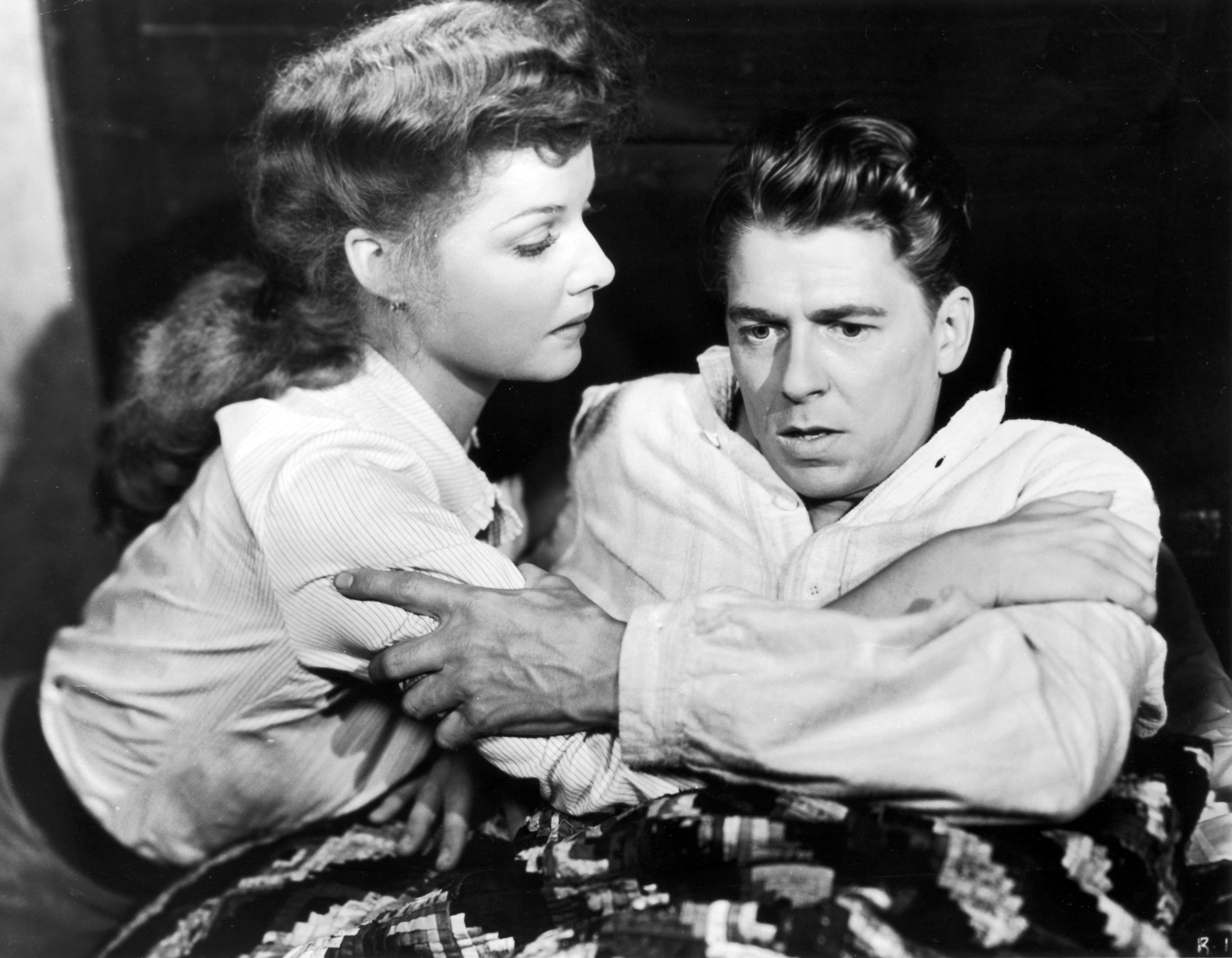
Kings Row - Saturday, June 4, 1:00 p.m.
Sunday, June 5, 4:00 p.m.
Dir. Sam Wood. 1942, 127 mins. 35mm. With Ann Sheridan, Robert Cummings, Ronald Reagan. Reagan gives a fine performance as Drake McHugh, a rich heir-turned-amputee who loses his fortune to embezzlement. Seen as overly brooding and melancholy at the time of its release, Kings Row is one of Wood’s best films, with atmospheric, Oscar-nominated cinematography by Howe.
They Made Me a Criminal - Saturday, June 4, 5:00 p.m.
Dir. Busby Berkeley. 1939, 92 mins. Archival 35mm. With John Garfield, Claude Rains, Ann
Sheridan, Gloria Dickson, Ward Bond, and the Dead End Kids. This Warner Bros. crime film features Garfield as a New York boxer who goes on the lam to rural Arizona after being wrongly accused of murder. There, he hides out on a work farm with a young woman (Dickson) overseeing thereformation of a rowdy group of juvenile cases (the Dead End Kids, fresh off Angels with Dirty Faces). The unlikely pair of Howe and Berkeley manage the kaleidoscopic blend of genre elements with aplomb, as proto-noir shades into depression-era social picture, before blossoming into bucolic romantic comedy.
Transatlantic - Saturday, June 11, 1:30 p.m.
Sunday, June 18, 3:15 p.m.
Dir. William K. Howard. 1931, 78 mins. Archival 35mm. With Edmund Lowe, Greta Nissen, Myrna Loy, John Halliday, Jean Hersholt. Howe and Howard paired for the first time for this ensemble dramatic thriller set entirely on an ocean liner where the high seas aren’t nearly as dangerous as the passengers, conspiring and infighting over fortunes made and lost. Transatlantic features jaw-dropping wide angles and deep-focus lensing a full decade before Citizen Kane. (Restored by The Museum of Modern Art and The Film Foundation with funding provided by The George Lucas Family Foundation.)
The Power and the Glory - Saturday, June 11, 3:30 p.m.
Saturday, June 18, 4:45 p.m.
Dir. William K. Howard. 1933, 76 mins. Archival 35mm print courtesy of the UCLA Film & TV Archive. With Spencer Tracy, Colleen Moore, Ralph Morgan. Tracy stars as Tom Garner, a cigar-chomping industrialist whose supposed villainy is steadfastly contradicted by his right-hand man (Morgan). Widely conjectured as an influence on Citizen Kane, Preston Sturges’s screenplay employs a flashback structure to set the record straight about its protagonist, from an influential early childhood incident to Machiavellian conquests to furtive affairs and heartbreak. Howe creates stunning imagery throughout, alternating between understated dramatization and purposefully stylized, shadow-dominant compositions in service of a story defined by hubris and foreboding.
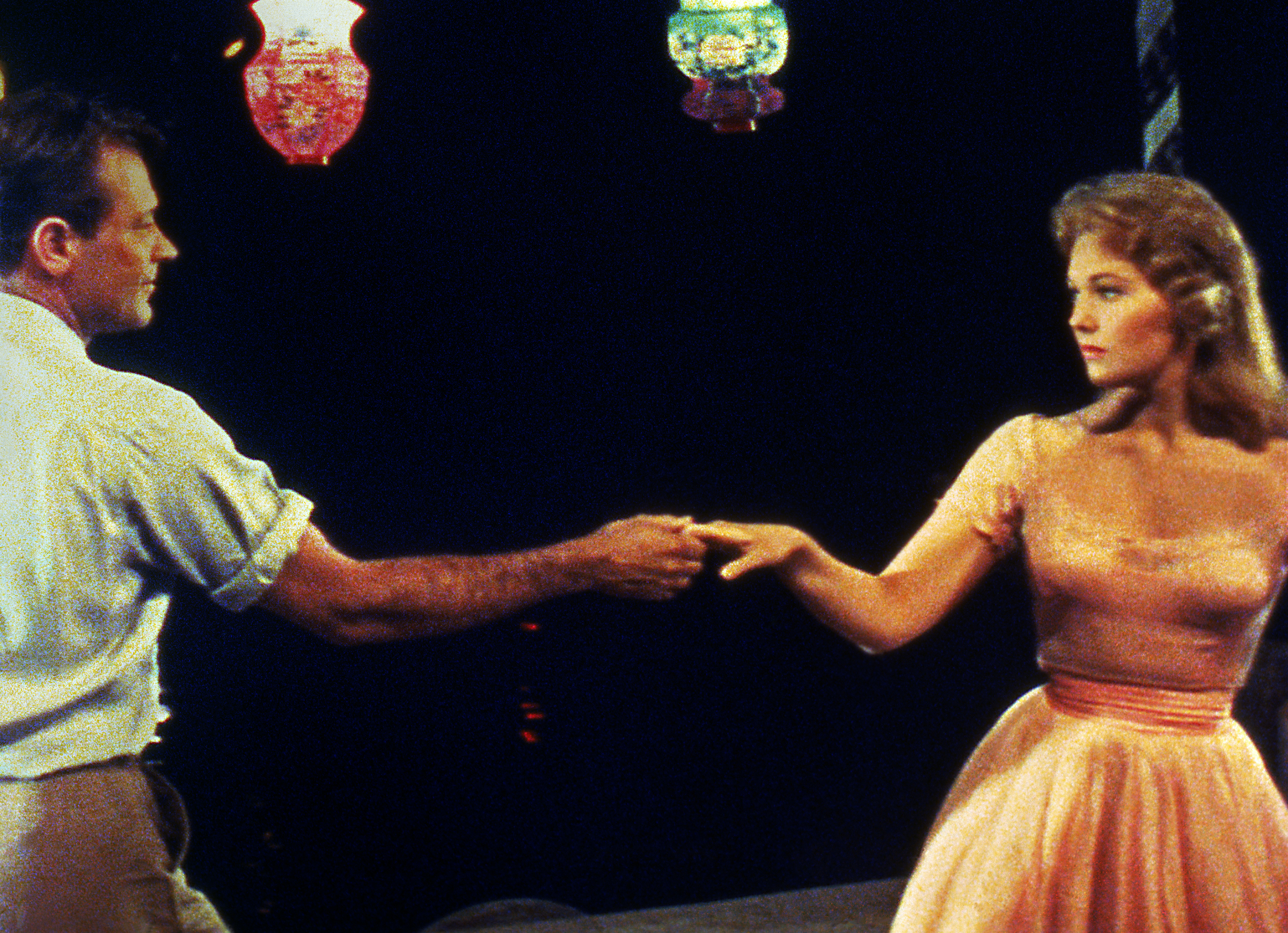
Picnic - Sunday, June 12, 1:30 p.m.
Sunday, June 19, 2:00 p.m.
Dir. Joshua Logan. 1955, 115 mins. DCP. With William Holden, Kim Novak, Rosalind Russell, Susan Strasberg, Cliff Robertson. William Inge’s smash 1953 Broadway production, which dared to uncover the smoldering desires of small-town American life, was transformed into a hit movie by studio stalwart Logan, who also directed the original stage version. For the screen, Logan and Howe bring Inge’s then-scandalous play to sensuous, Technicolor life, using extensive location shooting in Kansas to lend authenticity to the story of a handsome drifter (Holden) who arouses the romantic and erotic interests of his buddy’s girlfriend (Novak), her little sister (Strasberg), and a middle-aged schoolteacher (Russell).
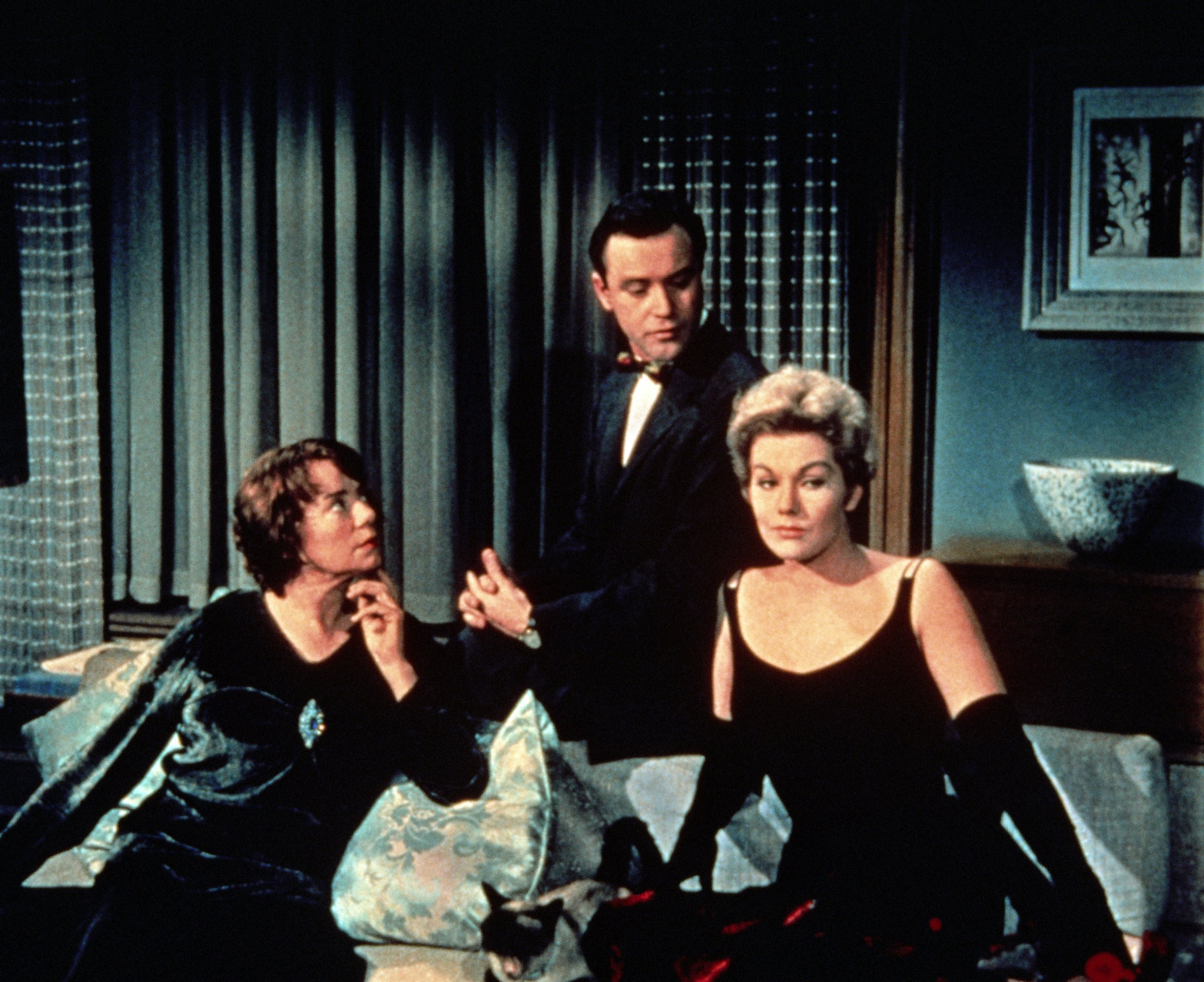
Bell, Book and Candle - Sunday, June 12, 4:15 p.m.
Saturday, June 25, 3:15 p.m.
Dir. Richard Quine. 1958, 106 mins. DCP. With Kim Novak, James Stewart, Jack Lemmon, Ernie Kovacs, Janice Rule, Elsa Lanchester, Hermione Gingold. A hipster Greenwich Village witch (Novak) casts a romantic spell on her upstairs neighbor (Stewart). Howe’s work on the film is atypically stylized, featuring strong colors, ornate lighting, spectral conjurings and cat’s-eye perspectives.
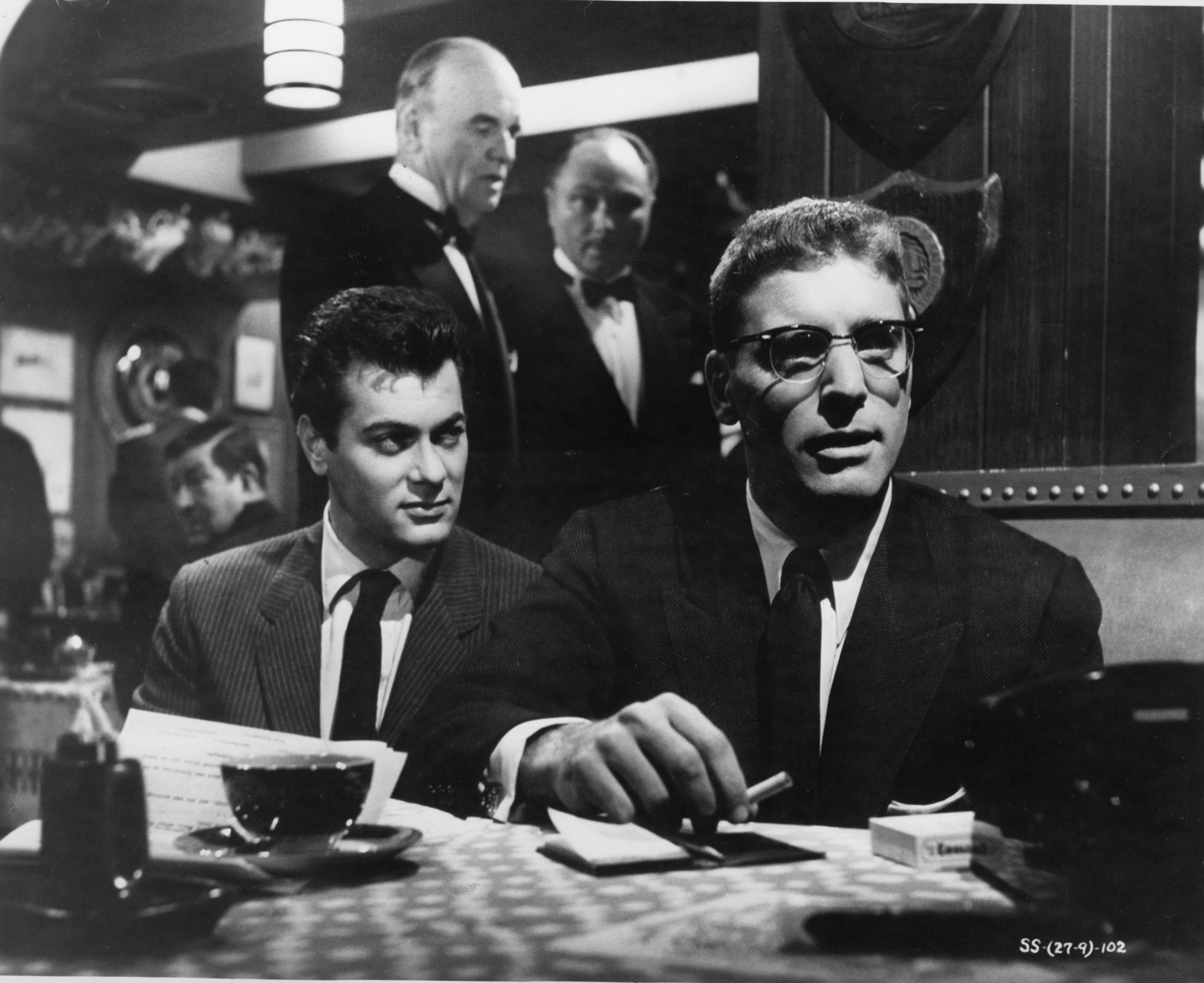
Sweet Smell of Success - Friday, June 17, 7:00 p.m.
Sunday, June 19, 4:30 p.m.
Dir. Alexander Mackendrick. 1957, 96 mins. 35mm. With Burt Lancaster, Tony Curtis. One of the great New York movies of the 1950s, Sweet Smell of Success pits Lancaster’s ruthless columnist J. J. Hunsecker against Curtis’s desperate publicist Sidney Falco in a noirish, pitch-dark morality play. The whip-smart script by Clifford Odets is rightly famous, but just as essential is Howe’s black-and-white photography, a nightmarish riot of light and darkness, much of it filmed on location in New York.
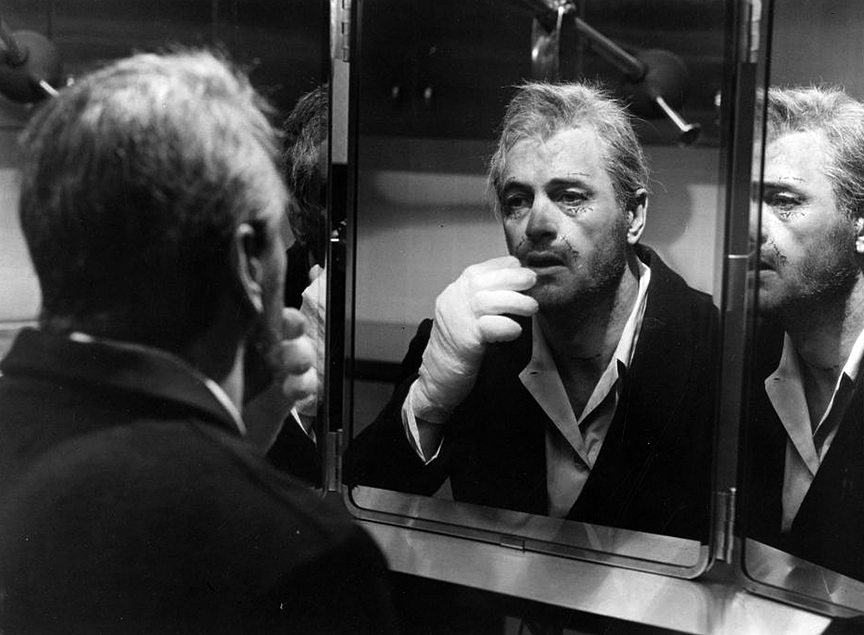
Seconds - Friday, June 24, 7:00 p.m.
Sunday, June 26, 4:00 p.m.
Dir. John Frankenheimer. 1966, 107 mins. DCP. With Rock Hudson, John Randolph, Frances Reid, Murray Hamilton, Salome Jens. A middle-aged, married banker in New York is offered a chance at a second life. Arthur Hamilton (blacklisted actor John Randolph) undergoes complete reconstructive surgery to become Tony Wilson (Rock Hudson), a younger, single artist living in Malibu. Howe’s Oscar-nominated work is captured in stark black-and-white and uses misshapen lenses to create a surreal atmosphere as Arthur Hamilton’s dreams turn into a waking nightmare.
Funny Lady - Saturday, June 18, 12:30 p.m. Saturday, June 24, 3:00 p.m. Dir. Herbert Ross. 1975, 136 mins. DCP. With Barbra Streisand, James Caan, Omar Sharif, Roddy McDowall, Ben Vereen. Though nominated for five Academy Awards, including cinematography, this sequel to Barbra Streisand's breakout film, Funny Girl, was mostly roasted by critics. In hindsight, Funny Lady more bold than its trappings might indicate. It’s also impressively photographed by Howe in what would be his last movie.
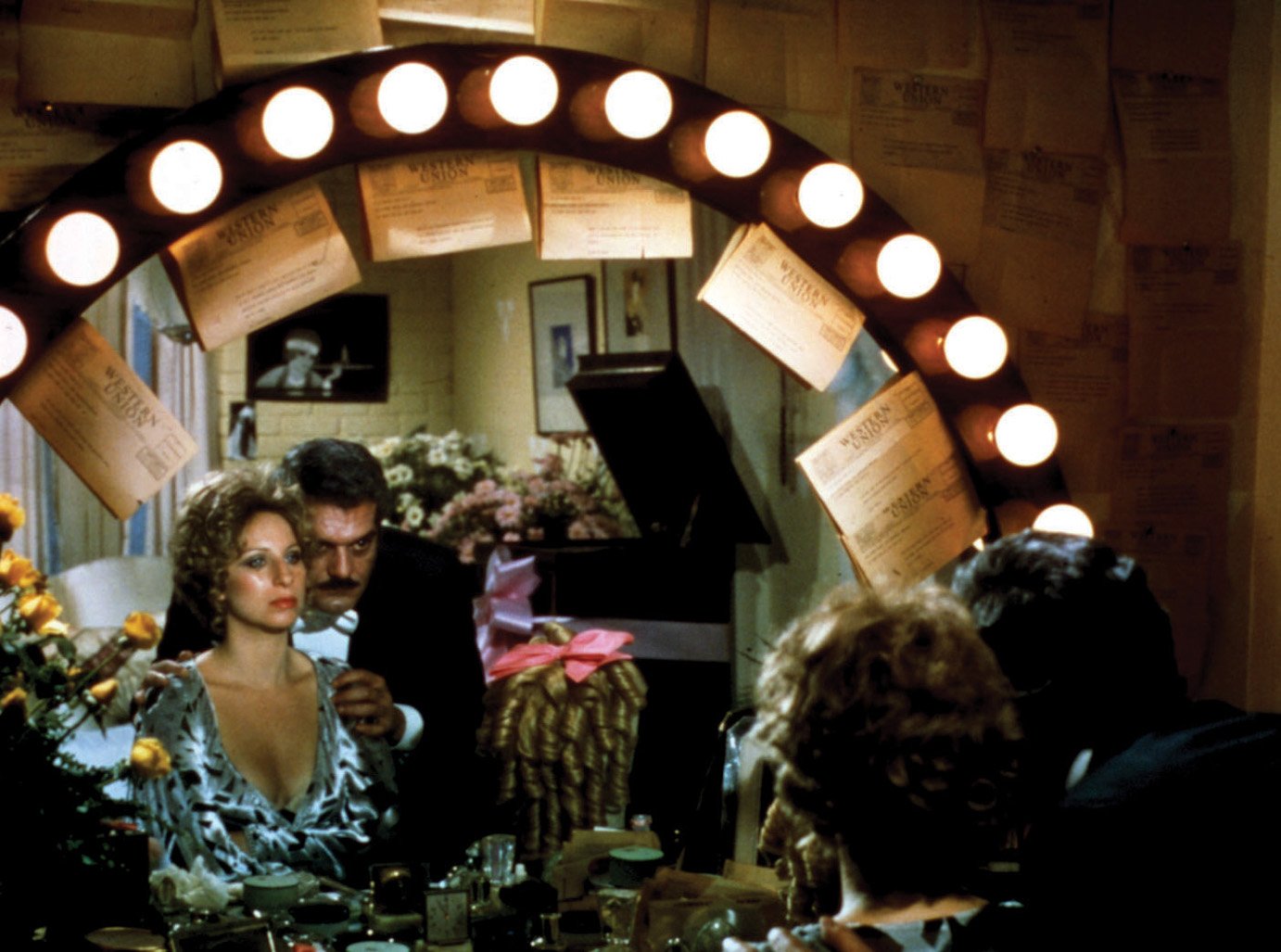
Peter Pan - Saturday, June 25, 1:00 p.m. Sunday, June 26, 1:30 p.m. With live accompaniment by Makia Matsumura on Saturday, June 25, 1:00 p.m. Dir. Herbert Brenon. United States. 1924, 102 mins. 35mm. With Betty Bronson, Ernest Torrence, Cyril Chadwick, Virginia Brown Faire, Anna May Wong, Esther Ralston, George Ali, Mary Brian, Philippe De Lacey, Jack Murphy. Brenon’s adaptation of J. M. Barrie’s 1904 stage play disproves the notion that “filmed theater” of the silent era is less cinematic than the montage film. Peter is played by a girl (then-unknown Bronson); the Darling family dog is an actor in full-body suit; and, as in a live performance, the audience is asked to clap to revive Tinker Bell (Browne Faire). In his fourth of eight collaborations with Brenon, Howe’s delicately balanced chiaroscuro would jumpstart his reputation.
